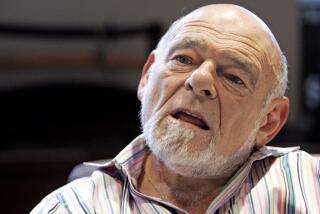Tribune must get FCC approval to transfer broadcast licenses
- Share via
WASHINGTON — The hurdles aren’t over for Tribune Co., which still must get regulatory approval before it can emerge from bankruptcy protection.
Once the federal judge issues his final order confirming the company’s reorganization plan, expected in days, the new owners must persuade the Federal Communications Commission to transfer the Chicago media company’s 24 broadcast TV and radio station licenses to them. Because Tribune owns newspapers and broadcast stations in several markets, including Los Angeles, Chicago and South Florida, the FCC must grant waivers from its restrictions on ownership of multiple media outlets in the same city.
Lawyers from Tribune and its senior creditors — a group led by Oaktree Capital Management, Angelo Gordon & Co and JPMorgan Chase & Co. — have been meeting with FCC officials in recent weeks to resolve any potential problems with the waivers, which the company applied for in 2010. Among those working on Tribune’s behalf is former FCC Chairman Richard Wiley, one of the most well-connected media attorneys in Washington, who has been representing JPMorgan.
Before Tribune went private in 2007, the FCC granted a permanent waiver to the company for its Chicago media holdings — the Chicago Tribune, WGN TV and WGN radio. The FCC also granted temporary waivers in Los Angeles, where the company owns the Los Angeles Times and KTLA-TV Channel 5, as well as New York, South Florida and Hartford, Conn. But new waivers are required with a change in ownership.
The FCC also voted in 2007 to ease media ownership rules in the nation’s 20 largest markets, which would have meant Tribune only needed a waiver for small-market Hartford.
A federal judge tossed out the rule changes on technical grounds. Last year, the FCC proposed similar rules that would allow so-called cross-ownership in the top 20 markets. FCC Chairman Julius Genachowski would not comment on the Tribune waivers, and other commissioners did not respond to requests for comment.
Tribune officials said the FCC’s recent proposal indicates the commission is likely to grant at least temporary waivers for Los Angeles, Chicago, New York and South Florida until the new rules are in place. A waiver for Hartford, where the company owns two TV stations and the Hartford Courant newspaper, could be a problem. Tribune officials are hoping for a decision on the waivers within 90 days.
“We take some comfort in the fact that the FCC has a rule-making underway which points to relief in the top 20 markets,” said Tribune Vice President Shaun Sheehan, the company’s main lobbyist in Washington. “Given that, we think it only appropriate that waivers be extended to the new Tribune while the FCC deliberates the issue.”
A handful of public interest, minority and labor groups, including the Teamsters and the United Church of Christ, have filed petitions with the FCC to deny Tribune’s waiver requests.
“Los Angeles is a diverse city. We need diverse news,” said Alex Nogales, president of the National Hispanic Media Coalition, a nonprofit civil rights advocacy group that opposes the waivers. He is concerned that The Times and KTLA will consolidate their news operations.
But media consolidation has become less of an issue since the Great Recession. Some of the leading opponents in Washington are no longer active, including former Sen. Byron L. Dorgan (D-N.D.), who left office in 2011, and the Media Access Project, a longtime public interest law firm that suspended operations in May.
“I think there’s less opposition to it and less attention to it these days,” Dorgan said this week. “These companies that wish to get waivers are very large companies, influential companies, and there’s a lot of politicians who don’t want to take them on.”
More to Read
Inside the business of entertainment
The Wide Shot brings you news, analysis and insights on everything from streaming wars to production — and what it all means for the future.
You may occasionally receive promotional content from the Los Angeles Times.











